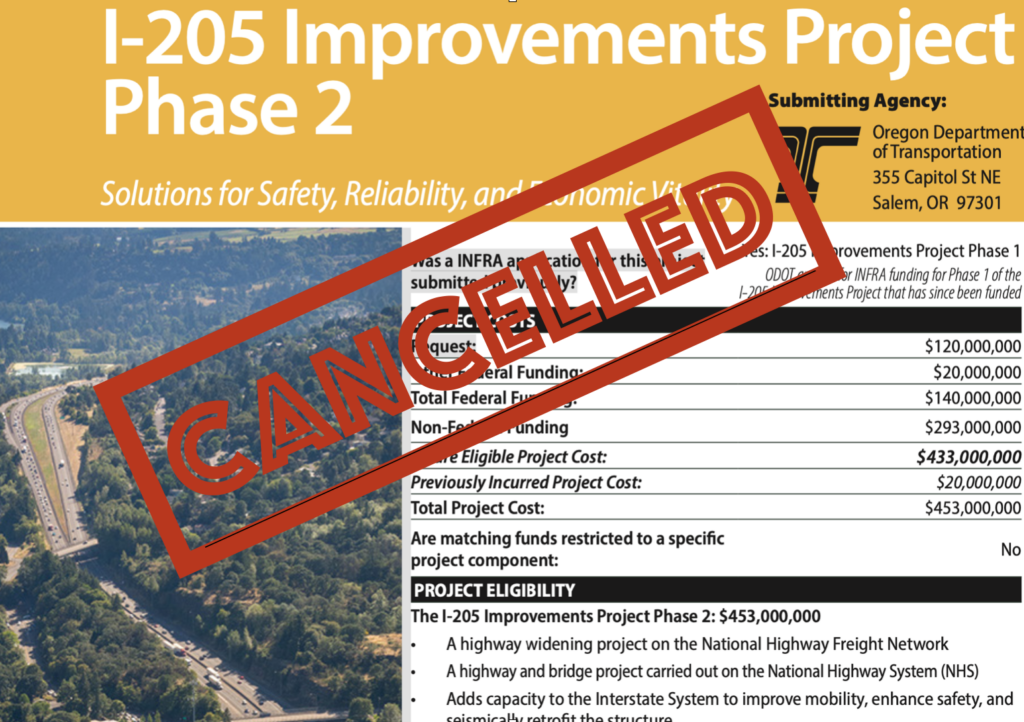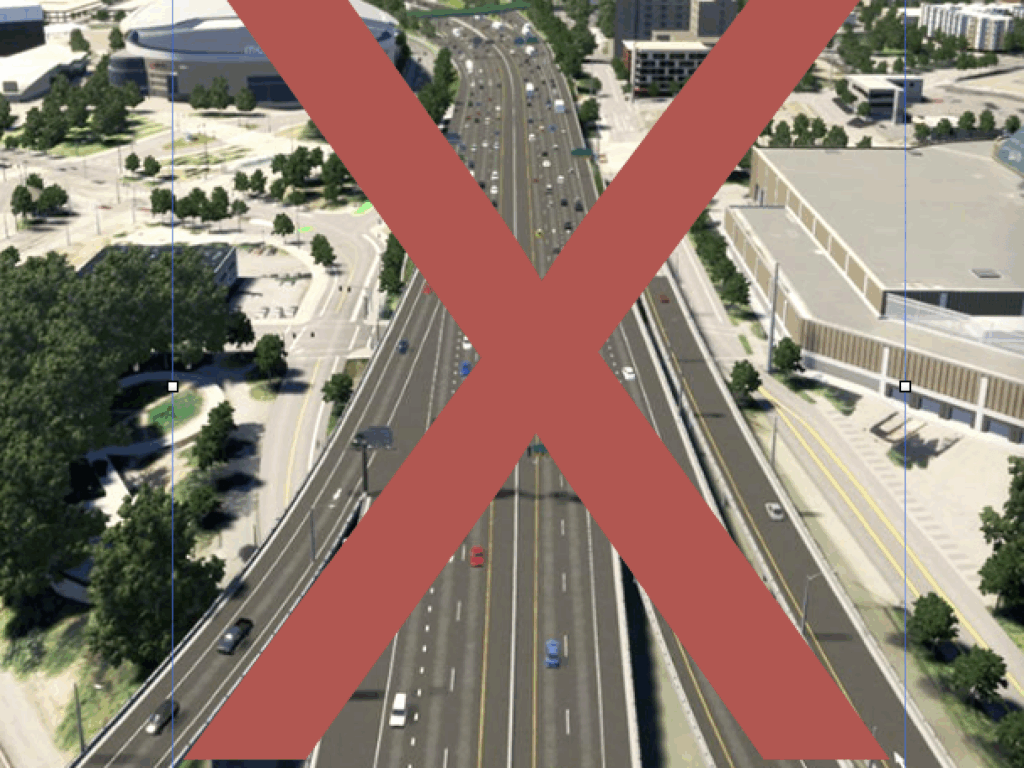On June 28, 2023, City Observatory’s Joe Cortright testified to the Oregon Transportation Commission about the agency’s dire financial situation.
Background: The Oregon Department of Transportation is pushing a multi-billion dollar freeway widening program in Portland, dubbed the “Urban Mobility Plan.” The agency has never fully identified how the plan would be paid for, and recent plans to put tolling on hold for two years, prompted Governor Tina Kotek to direct a new look at project plans and agency finances. ODOT has cancelled one project (Phase 2 of I-205), and effectively admitted it has no way to pay for another, the I-5 Rose Quarter project. The new plan reveals yet more cost-overruns on these already bloated projects, and in reality, provides no explanation of how they might be funded.
For the record: Joe Cortright. I’m an economist with City Observatory and a member of No More Freeways. I’m commenting on the Urban Mobility Finance Plan developed by your staff. This isn’t really so much a plan at all as as it is a belated and only partial admission of the deep-seated structural financial problems for which your staff has no serious solution. The “plan” that they are offering is a vague hope that more federal and state funds will magically appear for the projects in the Urban Mobility plan.
The fiscal crisis that ODOT is now in was foreseeable and foreseen to anyone who took a serious look at the at the agency’s finances. Your revenue model and your expenditure processes are broken: the gas tax is already coming in below projections and is projected to decline further. Vehicle miles traveled, according to your own forecasts, are in permanent decline. State climate goals call for a 50 percent decline in gasoline sales which will further reduce your revenue.
And we received notice earlier this month that the Highway Cost Allocation Study shows that because of ODOT spending patterns we’ll have to reimburse trucks and heavy over-the-road vehicles about $220 million per year. So your revenue situation is far worse than you’ve acknowledged.
In the face of this, the Urban Mobility Plan is confronting you with huge cost overruns. We’ve seen that the Rose Quarter Project’s price tag has now ballooned to $1.9 billion —more than four times the $450 million that the Legislature was told that this project would cost when it approved it in 2017.
Despite these cost overruns, there is not one word in this plan about right-sizing any of these projects, which are all over-built. I would note that then-Speaker now Governor Tina Kotek called for right-sizing these projects in 2021 when she voted against House Bill 3055 which authorized the commission to do additional borrowing.
Please take a close look at the scale of these projects, because your staff has concealed exactly how large these projects are. This is the reason they’re so expensive is that the Rose Quarter project is a 10-lane wide freeway project and the Interstate Bridge Replacement is a 12-lane wide freeway project. If these projects were right-sized they would be vastly less expensive.
Finally you’re counting on toll revenues to bail out your financial situation. As an economist I can tell you the effect of tolls will be to reduce traffic, which in many respects is a good thing. But by tolling these roadways to pay for them, you will essentially obviate the need for additional capacity. ODOT’s own studies of the Rose Quarter project show that implementation of Regional Mobility Pricing will be more effective in reducing congestion than the now $1.9 billion cost of widening the roadway through there.
In the past you’ll pursued a piecemeal approach to these projects. ODOT is in the midst of a serious financial crisis: the cost of these projects is exploding. It’s time to take a serious objective look —and I just have to say as somebody who’s been commenting on these projects for more than a couple of decades now— some engagement by your staff in a serious fashion, rather than just two minutes of enduring the comments that we make and then simply ignoring them would be much appreciated. We have technical expertise and would be happy to engage with your staff and assist the commission to deal with the gnarly financial problems that it faces.


